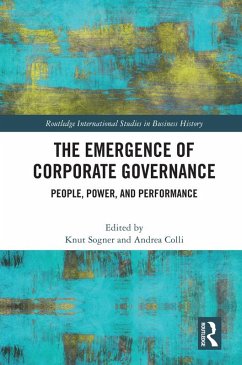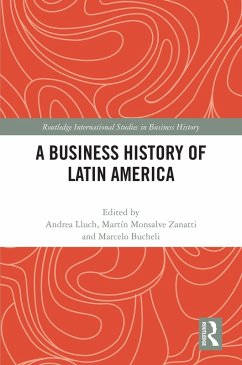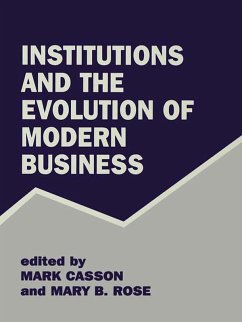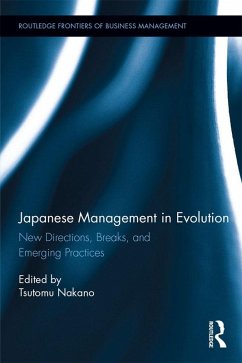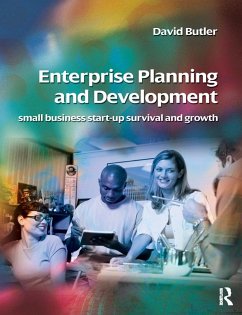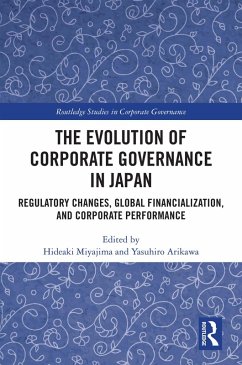
The Evolution of Tiger Management (eBook, PDF)
Korean Companies in Global Competition
Versandkostenfrei!
Sofort per Download lieferbar
41,95 €
inkl. MwSt.
Weitere Ausgaben:

PAYBACK Punkte
21 °P sammeln!
Throughout the last several decades, Korean companies have become strong global competitors in a wide range of manufacturing industries. How did they achieve this exceptional performance? The Evolution of Tiger Management uncovers the secret of their success through a comprehensive analysis of Korean-style management. It explains how it has developed, why it works so well, what non-Koreans can learn from it, and what Korean companies need to do to stay competitive in the future.This book is an extended and significantly updated new edition of Tiger Management: Korean companies on world markets...
Throughout the last several decades, Korean companies have become strong global competitors in a wide range of manufacturing industries. How did they achieve this exceptional performance? The Evolution of Tiger Management uncovers the secret of their success through a comprehensive analysis of Korean-style management. It explains how it has developed, why it works so well, what non-Koreans can learn from it, and what Korean companies need to do to stay competitive in the future.
This book is an extended and significantly updated new edition of Tiger Management: Korean companies on world markets (Routledge, 2012). It tells the remarkable stories of how Korean firms, seemingly coming from nowhere, have successfully challenged their Western and Japanese competitors globally. A new chapter highlights the rise of Korean venture firms and start-ups. Next, the essence of Tiger Management is analyzed by showing that it consists of an effective combination of business strategy, leadership, and human resource management practices. Finally, the evolution and future of Tiger Management is discussed by showing how Korean companies have adapted to changes at home and abroad, and how non-Korean companies can adopt Tiger Management. A new final chapter discusses the way forward for Korean companies.
This book is an extended and significantly updated new edition of Tiger Management: Korean companies on world markets (Routledge, 2012). It tells the remarkable stories of how Korean firms, seemingly coming from nowhere, have successfully challenged their Western and Japanese competitors globally. A new chapter highlights the rise of Korean venture firms and start-ups. Next, the essence of Tiger Management is analyzed by showing that it consists of an effective combination of business strategy, leadership, and human resource management practices. Finally, the evolution and future of Tiger Management is discussed by showing how Korean companies have adapted to changes at home and abroad, and how non-Korean companies can adopt Tiger Management. A new final chapter discusses the way forward for Korean companies.
Dieser Download kann aus rechtlichen Gründen nur mit Rechnungsadresse in A, B, BG, CY, CZ, D, DK, EW, E, FIN, F, GR, HR, H, IRL, I, LT, L, LR, M, NL, PL, P, R, S, SLO, SK ausgeliefert werden.






